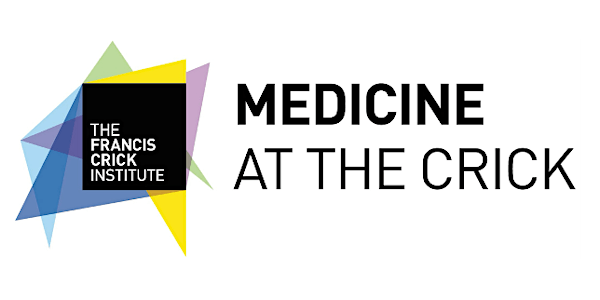Inflammation and Cancer Promotion: Revisiting Berenblum
Our Medicine at the Crick event series showcases major advances in biomedical science and raises awareness of the medical implications of major scientific advances. Interested members of the Crick and wider UK biomedical community are invited to attend. Members of the academic medical press are also invited. Each event comprises a series of talks and a panel discussion, followed by networking for in person attendees.
More about the event
This 14th edition of Medicine at the Crick will be hosted by Charlie Swanton (The Francis Crick Institute)
Increasing evidence suggests humans are a patchwork of mutant clones. Indeed, it is estimated that a healthy 60 year old will have over a 100 million mutant clones with oncogenic mutations, yet cancer is not an inevitable consequence of ageing. These data suggest that oncogenic mutations may be necessary for tumour initiation, but they may not be sufficient. In keeping with this, Isaac Berenblum provided evidence that tumour initiation in mouse models was a two-step process. The first, we now know involves the acquisition of an oncogenic mutation, the second, exposure to an inflammatory stimulator such as TPA. The two together are required for tumour formation. Increasing evidence in pancreas, melanoma, glioma, lung cancer and mesothelioma suggest similar initiation/promotion mechanisms are required for tumour initiation. These discoveries have important implications for preventative medicines targeting the first steps in tumour evolution. This Medicine at the Crick event will review the state-of-the-art evidence supporting the Berenblum initiator-promoter model and explore how this knowledge may impact new efforts to prevent tumour initiation and open up a new field of molecular cancer prevention.
Programme
Speakers and panellists include: Dr Direna Alonso-Curbelo (Institute for Research in Biomedicine Barcelona), Dr William Hill (The Francis Crick Institute), Prof Simona Parrinello (UCL Cancer Insitute), Prof Richard Marais (Oncodrug Ltd), Prof Allan Balmain (UCSF Helen Diller Family Comprehensive Cancer Center) and Dr Ilaria Malanchi (The Francis Crick Institute)
Lectures will be followed by a Q&A panel discussion and a networking reception for in person attendees until 19:00.
You can find a more detailed programme here.
Registration
We will host this as a hybrid event, with an in-person audience joined by others online. Please book now for a free virtual or in-person ticket. Virtual ticket holders will receive Zoom joining details in advance of the webinar and in-person ticket holders will be emailed with full attendance details closer to the event.
To receive details of future Medicine at the Crick events, email medicine-at-crick@crick.ac.uk with the subject line 'Subscribe'. In signing up for updates on Medicine at the Crick, you confirm that you have accepted the terms of our Privacy Policy. You can unsubscribe at any time by contacting us at the same address medicine-at-crick@crick.ac.uk
